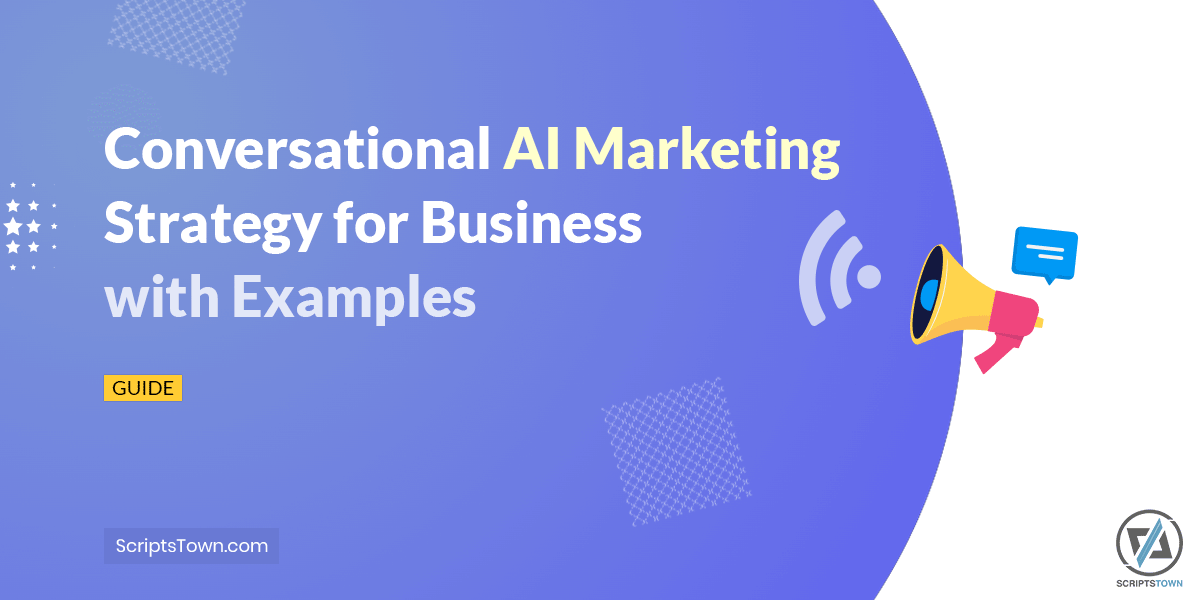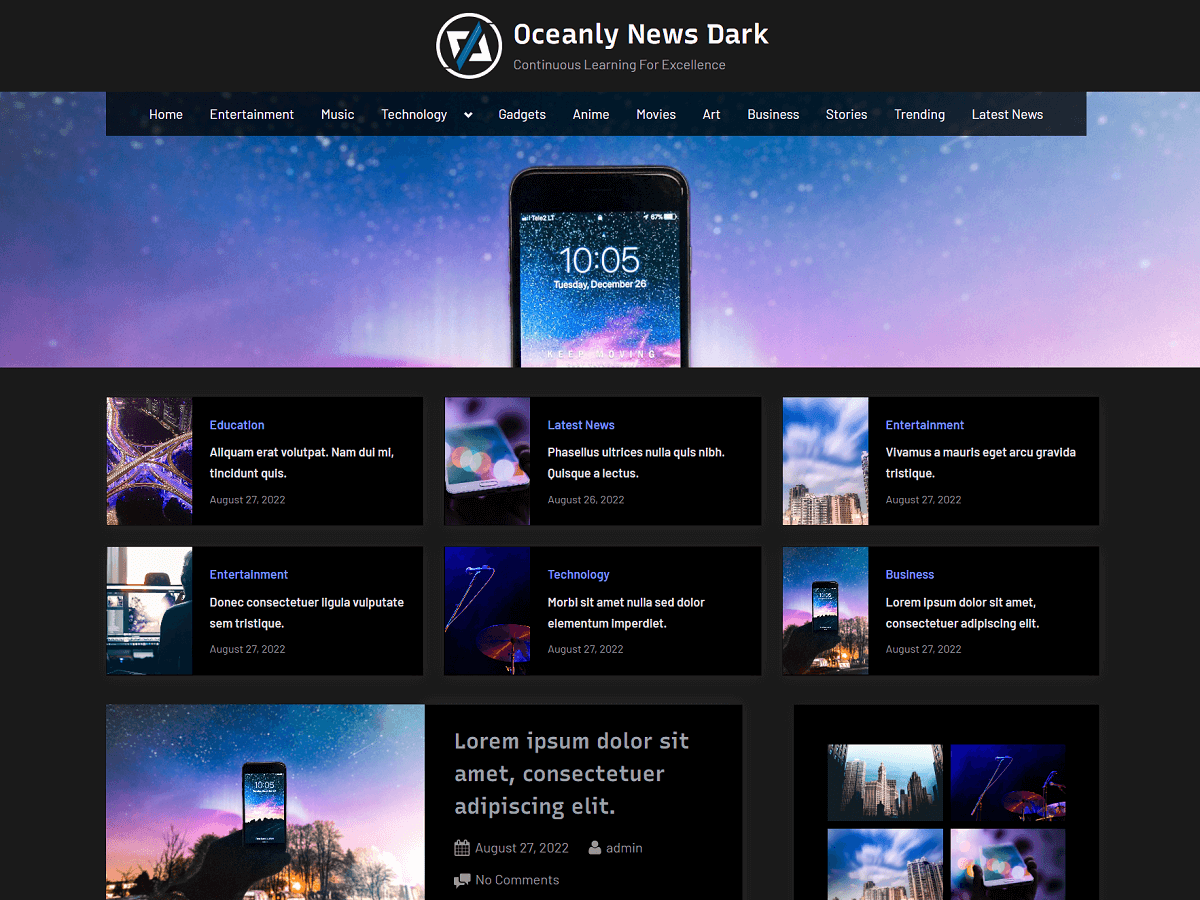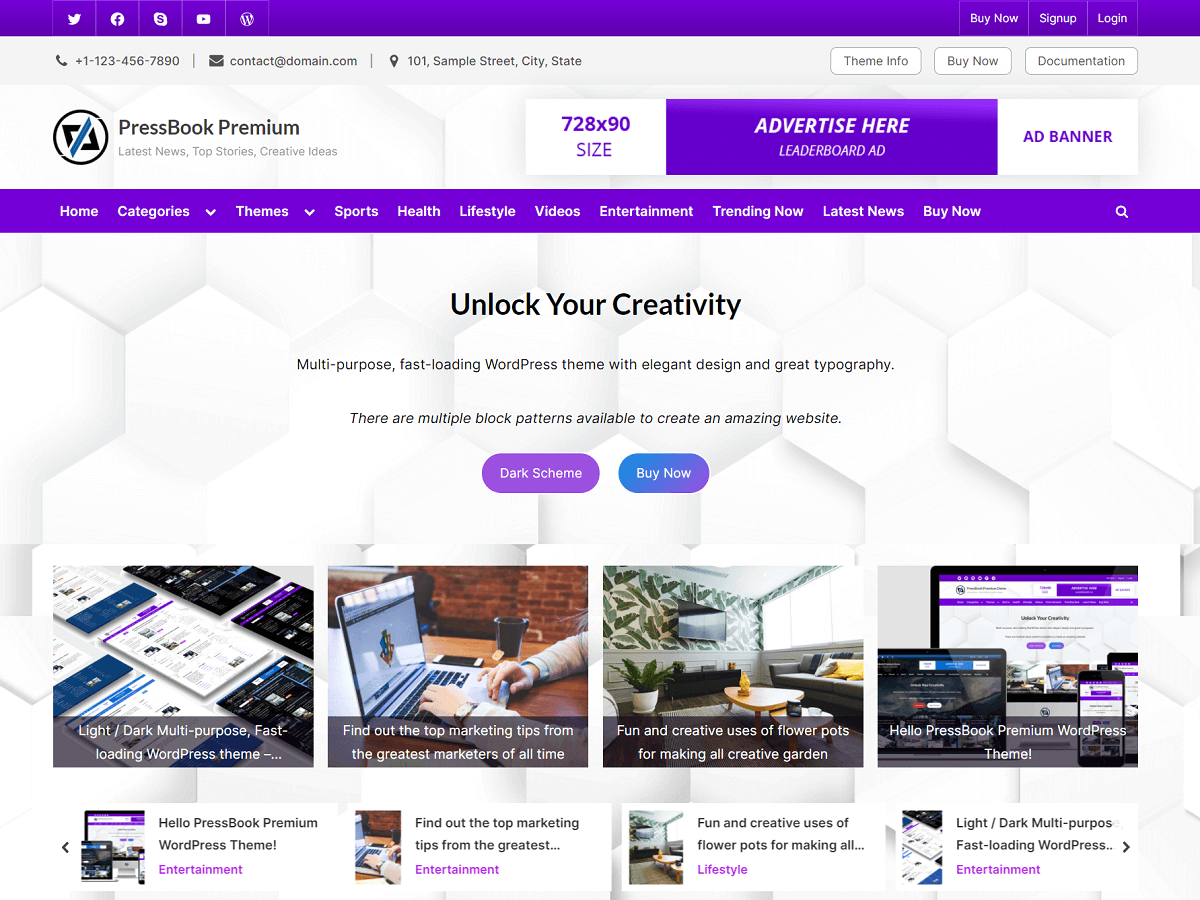Conversational AI Marketing is a dynamic approach that uses advanced AI language models to promote products, services, or websites through natural conversations.
These AI models are integrated into conversational AI assistants. This makes the assistants intelligent systems. The intelligent systems can strategically insert relevant mentions or descriptions of offerings. At the same time, they respond helpfully to users’ queries.
These AI assistants possess excellent language understanding and generation capabilities. They can comprehend the context and intent behind users’ questions, and then craft fluent, human-like responses that seamlessly incorporate promotional elements.
Conversational AI can take various forms, like a chatbot, virtual assistant, financial guidance, messaging app, voice-enabled interface, and any other conversational interface.
How Does Conversational AI Work for Marketing?
Conversational AI works by interpreting user inputs, processing them, and generating appropriate responses tailored for marketing purposes. While generating responses, it can also recommend relevant products, services, or promotional offers.
The process involves several steps:
- Input Processing: The AI captures the user’s message through text or voice input.
- Natural Language Understanding (NLU): The AI uses natural language processing techniques to decipher the meaning, intent, and context of the user’s message, including any mentions of products, services, or marketing terms.
- Dialogue Management: Once the AI understands the user’s question or statement, it determines the appropriate marketing-focused response based on the context and any relevant product/service information from the company’s databases.
- Natural Language Generation (NLG): The AI formulates a reply in natural language. This could include suggesting products for the user, promotional discounts, or any marketing messages to guide the user toward a purchase decision.
- Output Delivery: The AI’s response is delivered to the user in text or speech form through the same conversational interface, often with additional rich media elements like images, videos, or product carousels to enhance the marketing experience.
Benefits of Conversational AI Marketing Strategy
Conversational AI marketing offers numerous benefits for businesses.
- 24/7 Availability: AI assistants are always online to answer user questions day or night. This ensures users get help exactly when they need it without delays.
- Personalization: AI understands individual preferences and tailors recommendations. This creates a customized, one-on-one experience for each user.
- Efficiency: AI can handle many user conversations at the same time. This reduces wait times and increases overall efficiency in user support and sales processes.
- Scalability: As a business grows, AI can easily take on more user interactions. Service quality remains consistent even with increasing demand.
- Learning from Conversations: Conversational AIs continuously learn from interactions, so successful promotional responses get reinforced over time through user feedback. This improves their marketing expertise iteratively.
- Insights from Data: AI analyzes conversations to understand what users want. This data guides marketing and product improvement decisions.
Context Awareness and Multi-Turn Conversations
Conversational AI can maintain the context and memory of multiple exchanges of messages. This context awareness results in natural and coherent dialogues, as the conversational agent can recall previous inputs and respond accordingly.
Emotional Intelligence and Sentiment Analysis
Conversational AI agents can detect and analyze the sentiment and emotional tone of user inputs, to adjust their responses and communication style accordingly.
They can intelligently recommend products or services based on the user’s specific needs, queries, and preferences, increasing the relevance and effectiveness of product promotions. Further down the line, these AI assistants can expertly qualify and generate high-quality leads aligned with particular interests.
Proactive User Support and Engagement
Conversational AI can be leveraged to provide proactive customer support. It can anticipate potential issues or inquiries and offer timely assistance or information.
For example, an AI chatbot for a software company could detect when a user is experiencing difficulties with a particular feature and proactively offer troubleshooting steps or relevant support resources. This proactive approach can help resolve issues before they escalate, leading to improved customer retention.
Improved Omni-Channel Presence with Conversational AI
An improved omni-channel presence ensures customers have seamless and consistent experiences with your business across all communication channels. This could include interactions via email, telephone (voice), live chat, any social media platform, and so on.
With an advanced conversational AI system, businesses can scale up their operations and manage customer interactions efficiently, providing immediate responses to common inquiries. For instance, an AI-powered voice assistant can handle routine phone calls, while chatbots manage conversations on websites and social media. This allows businesses to handle a high volume of customer interactions without compromising on quality.
When more complex issues arise, a conversational AI system can smoothly transfer the conversation to a human agent, preserving context. This would ensure that the customer receives the support they need without losing context.
This omni-channel AI strategy also provides valuable data insights into customer behavior. These insights can inform targeted marketing campaigns, leading to more personalized offerings and proactive customer service initiatives. The result is a more effective marketing strategy that drives growth and gives businesses a competitive edge in the market.
Accessibility and Native Language Support
AI can converse naturally in the customer’s preferred language. It can communicate in multiple languages, making it more accessible to users from different regions. This can significantly improve marketing by engaging users in their native language.
Furthermore, conversational AI agents and voice-enabled interfaces can provide better accessibility and a more inclusive experience for individuals who may have difficulty with other input methods or graphical user interfaces.
Cost-Effective User Support
From a business perspective, conversational AI can substantially reduce user support costs by automating inquiries. This allows businesses to scale support in a cost-efficient way.
Examples of Conversational AI Marketing Strategy
For any business, there are many ways to implement seamless conversational AI marketing in existing strategies.
Here are some examples of conversational AI marketing in various business domains:
- If someone asks about running shoes for sports, the AI might suggest a popular brand that the company sells.
- A user may ask about time management tips. Then, AI might suggest a productivity app from the company that includes task scheduling features.
- A user visits an online store and asks the AI assistant for suggestions on a birthday gift. The AI could respond by asking for the user’s budget and suggest popular products based on budget or other preferences.
- For a query on data analysis tools, the AI could showcase the business’s spreadsheet software with robust analytical capabilities.
- A potential traveler messages a virtual assistant to inquire about vacation packages. The AI could provide details about various destinations and suggests a package deal that includes flights and hotels.
- A user asks for help with a software issue through a company’s chatbot. The AI may ask for more details to provide troubleshooting steps and offer an upgrade to a premium support package for faster resolution.
- When a user seeks recommendations for online learning resources, the AI may highlight the company’s educational platform with courses on the desired topic.
Domain-Specific Examples
Here are some more examples of domain-specific conversational AI marketing:
E-commerce Chatbot
An e-commerce AI chat agent can assist customers throughout their shopping journey (product discovery, checkout). It can provide personalized product recommendations and answer questions about product features, demos, and availability.
Real Estate Virtual Assistant
A real estate virtual assistant can be a powerful tool for real estate agencies and brokers. This conversational AI agent can understand specific needs (location, budget, number of rooms, etc.) and help potential buyers or renters find their property.
Travel Assistants
Travel companies like Expedia use AI assistants to help customers book trips. The AI agent can suggest destinations, find the best deals, and answer travel-related questions.
Moreover, travel assistants can provide real-time updates on flight status and local weather conditions to keep travelers informed. This convenience encourages more bookings and enhances customer satisfaction.
Restaurant Assistants
For restaurants, an AI assistant can help manage reservations, answer menu questions, and process takeout orders. It can suggest food and beverage pairings, offer dietary information, and collect customer feedback to improve service quality. The AI assistant can upsell menu items, increasing average order value.
Automotive Guide
AI chatbots can help customers explore vehicle options, provide information on features and specifications, and assist with scheduling test drives or service appointments.
Banking and Finance
Conversational AI in finance can offer personalized financial advice, such as savings tips and investment recommendations based on the user’s financial behavior. They can also assist customers with account management, bill payments, and transaction history.
Healthcare Companion
A healthcare-focused AI can help patients manage medication schedules, track symptoms, and provide general health information. It can remind users of appointments, explains medical terminology, and offers guidance on when to seek professional help.
Retail Store Assistant
A retail store assistant can guide customers through their in-store shopping experience by providing information on product availability, store layout, and promotions.
It can also facilitate online ordering for out-of-stock items and assist with returns, improving the overall shopping experience and driving sales.
Event Planning Assistant
An event planning AI assistant can help users organize events by suggesting venues, managing guest lists, and coordinating schedules. It can quickly assess client needs by asking about event type, size, and preferences.
The AI assistant can provide instant responses to common questions about venues, catering options, and pricing packages. Through conversation, it can suggest suitable event themes and provide basic decor ideas tailored to the client’s interests. The assistant can also offer preliminary budget estimates based on the information gathered.
It can schedule consultations with human event planners directly within the chat interface. This feature captures leads even outside business hours, improving client convenience.
Education Enrollment Advisor
Universities and online learning platforms use AI assistants to guide prospective students through the enrollment process and program options. The AI can answer questions about courses, and provide information on admissions processes and requirements.
Educational Tutor Bot
An educational tutor bot can assist students by providing personalized learning experiences. It can help with homework, explain difficult concepts, and offer practice exercises in various subjects. The AI-driven tutor can adapt to each student’s learning pace and improve their understanding and academic performance.
Social Media Messaging
Businesses can also leverage AI assistants on social media platforms to engage with their audience and promote content or offerings.
AI can monitor social media conversations and queries to identify relevant opportunities to share educational resources, product updates, or special offers.
Best Practices for Conversational AI Marketing
Following are the best practices when using conversational AI marketing for a business:
Define Clear Goals and Objectives
- Before implementing a conversational AI marketing strategy, a business should define clear goals and objectives, such as improving customer engagement, increasing sales, promoting new products, streamlining support processes, or enhancing brand loyalty.
Train AI Models on Relevant Product Data
- Businesses can fine-tune pre-trained language models with their domain-specific data.
- Fine-tune AI models on relevant product data, allowing the system to develop a rich understanding of features, benefits, and use cases.
- Include relevant information such as details about a product, instructions for using a service, or answers to common customer inquiries.
- Invest in quality data sets, continuously refine the AI’s knowledge base, and ensure that it can handle a wide range of conversational scenarios and user intents.
Develop Conversational Flows and Triggers
- Design conversational flows that anticipate user queries and seamlessly integrate promotional content when relevant.
- Start with a friendly greeting and guide users through the interaction. For example, a restaurant’s AI assistant can greet users with, “Hi! How can I help you today? Are you looking to make a reservation or see our menu?”
- Implement triggers or rules that prompt the AI assistant to recommend specific products or services based on contextual cues, user intent, or predefined scenarios.
Avoid Excessive or Irrelevant Promotions
- Ensure that these promotional elements are integrated into the conversation in a natural and non-intrusive manner.
- A delicate balance must be achieved. Excessive or irrelevant promotions could frustrate users and undermine trust in the AI assistant.
- Effective conversational AI marketing should prioritize being genuinely helpful first. The AI agent’s response may include step-by-step guidance, links to documentation, simple FAQs, and other helpful resources, along with appropriate promotional elements.
- Inclusion of well-timed and valuable promotional elements in the AI response should enhance, not degrade, the user experience.
Integrate with Existing Systems, Platforms, or Processes
- Evaluate the platforms where the target audience is most active, such as the company’s website, social media channels, messaging apps, or virtual assistant platforms.
- Effective conversational AI solutions often require integration with existing business systems and data sources, like an inventory management system.
- To maximize the benefits of conversational AI marketing, businesses can integrate the AI system with existing customer relationship management (CRM) systems, marketing automation tools, and other relevant business processes. This ensures a seamless flow of data and enables more personalized and contextual interactions.
Fine-Tuning Responses for High-Value Queries
- Businesses can implement rules or prompts that trigger marketing responses for certain high-value queries. For example, if a user asks about project management tools, the AI could highlight the business’s own software while providing general advice.
- Identify areas for improvement, such as refining conversational flows, adjusting trigger rules, or improving the AI model’s training data.
Conclusion
Conversational AI could be a powerful marketing tool for a business. We have covered many examples and best practices for implementing a conversational AI marketing strategy.
With an effective conversational AI marketing strategy in place, businesses can differentiate themselves, build stronger customer relationships, and drive awareness of their products and services through intelligent, personalized conversations at scale.








